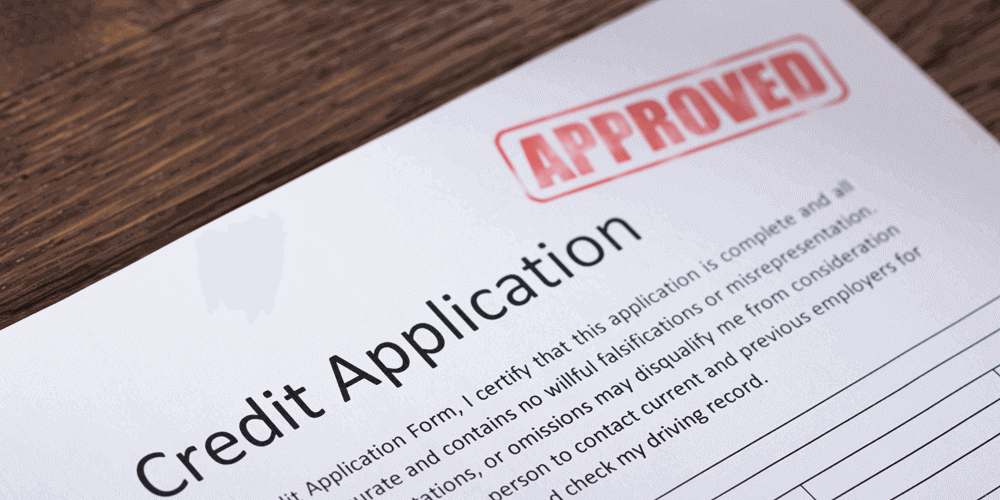What is a Co-Signer?


You might want to help a loved one obtain a loan by cosigning. Learn more about the pros and cons of cosigning loans so you can be sure you know what you’re getting into as a cosigner. [Duration- 2:27]
Highlights:
- A co-signer is a person who agrees to be legally responsible for someone else's debt.
- If a borrower has low credit scores or little to no credit history, adding a co-signer to their loan application may give them a better chance of being approved by the lender.
- Co-signers agree to be held legally responsible for a debt should the primary borrower fall behind on what they owe. A co-signed debt also appears on the co-signer's credit reports and may influence their credit scores as if the debt were their own.
Co-signers offer valuable support to borrowers with low credit scores or a limited credit history. Adding a financially experienced co-signer to a loan or lease may improve the chances of an applicant's approval. However, co-signing an agreement can also have negative consequences for the co-signer's financial well-being.
What does it mean to co-sign a loan?
A co-signer is a person who agrees to take legal responsibility for someone else's debt. If the primary borrower fails to meet their financial obligations on a loan or lease, the co-signer is held accountable for any missed payments. A co-signed debt will also appear on the co-signer's credit reports and can influence their credit scores as if the debt were their own.
When someone co-signs a loan or lease, they undertake a certain level of financial risk. However, they do not gain access to any of the funds or property tied to the co-signed agreement. That's why co-signers are most frequently family members or close friends who are willing to put their own finances on the line for a loved one.
Why would a loan need a co-signer?
Co-signers act as an additional safety net for lenders. Should the primary borrower fall behind on payments, the co-signer is legally responsible for the debt. If a borrower has limited income, low credit scores or little to no credit history, adding a co-signer may help a lender feel more confident in approving their application.
Additionally, a co-signer may help a borrower qualify for a larger principal, reduced interest rate or other improved loan terms. Lenders allow co-signers on many different types of debt including personal loans, auto loans, leases and mortgages.
What are the responsibilities of a co-signer?
Acting as a co-signer can have serious financial consequences. First, co-signers assume legal responsibility for a debt. So, if the primary borrower is unable to pay as agreed, the co-signer may have to pay the full amount of what's owed.
Second, a co-signed loan will appear on the co-signer's credit reports. The co-signer's credit scores may be positively or negatively impacted by the borrower's credit behavior.
Co-signing for someone is a significant commitment. So, don't fill out a credit application without having an in-depth financial discussion with the primary borrower. It's important to talk to the borrower about their ability to stay on top of their payments and to form a plan in case they fall behind on their financial obligations.
Pros of co-signing a loan
Generally speaking, it's the primary borrower who benefits most when you co-sign a loan. However, it's also an opportunity to have a positive impact for a borrower in a tight financial spot.
For example, co-signing a personal loan allows you to help a young friend or family member build a credit history, thus preparing them to qualify for even more new credit later. Similarly, if someone in your family has an impaired credit history or low credit scores, co-signing a loan may help them secure a bigger principal or less expensive loan terms. In this way, co-signers can take satisfaction in helping someone achieve their financial goals.
Cons of co-signing loans
As a co-signer, you'll experience just as much — if not more — financial risk as the primary borrower. Here are the ways co-signing may impact your finances.
- It can increase your debt-to-income ratio. Co-signing a loan may increase your debt-to-income ratio, which refers to the total amount of debt payments you owe every month divided by your gross monthly income. Lenders look at your debt-to-income ratio when considering you for a new credit account. If you already have a high amount of debt, adding a co-signed loan could impact your own ability to qualify for additional credit.
- It can affect your credit scores. Because a co-signed loan is recorded on your credit reports, any late or missed payments can have a negative impact on your credit scores. If the borrower defaults on the loan and ceases payment, the debt may be referred to a collection agency. This negative credit information can appear on your credit report for up to seven years and bring down your credit scores.
- It can leave you responsible for unpaid debt. If the primary borrower can't make a payment, you're responsible for the full amount of their debt. If the loan goes to collections, a debt collector may come after you to retrieve what's owed.
- It can damage your relationship with the primary borrower. Co-signing has the potential to put stress on your relationship with the primary borrower, who is oftentimes a friend or family member. Your finances are tied to theirs for the length of the loan, even if your personal relationship changes.
Helping a friend or family member secure a loan or lease can be rewarding. However, it's equally important to understand the financial risks before agreeing to co-sign an agreement for a loved one.

Get our credit monitoring & ID theft protection product for the Family today!
For $29.95 per month, you can feel more confident with Equifax CompleteTM Family Plan knowing that your family's credit is being monitored. Sign up today!



